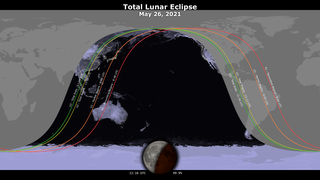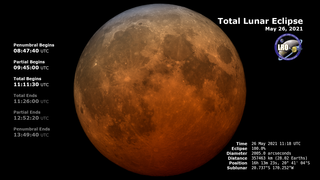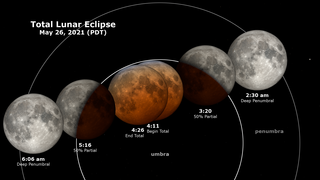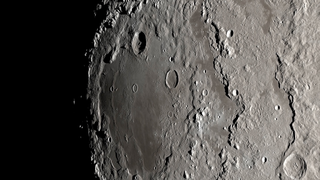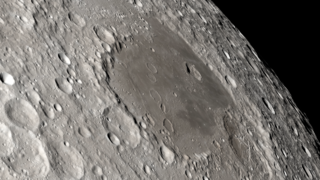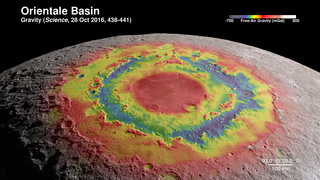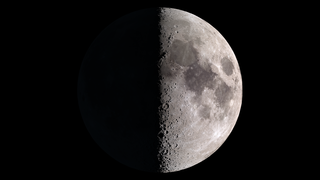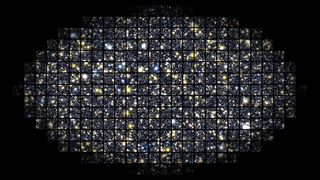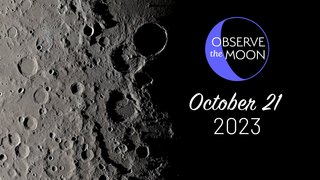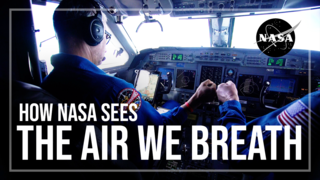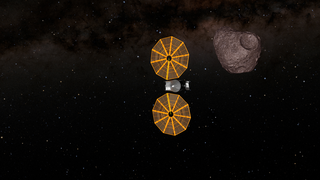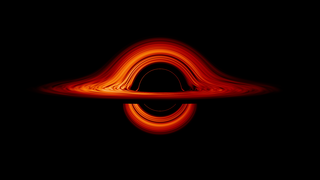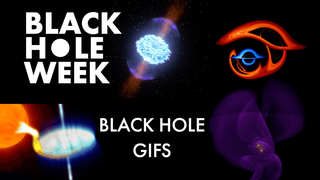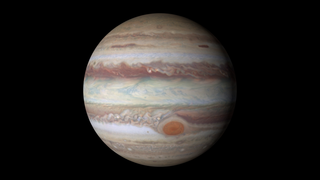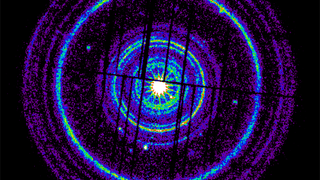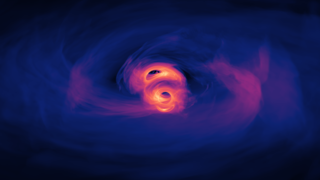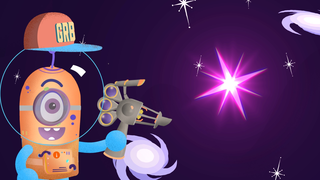Planets and Moons
ID: 13861
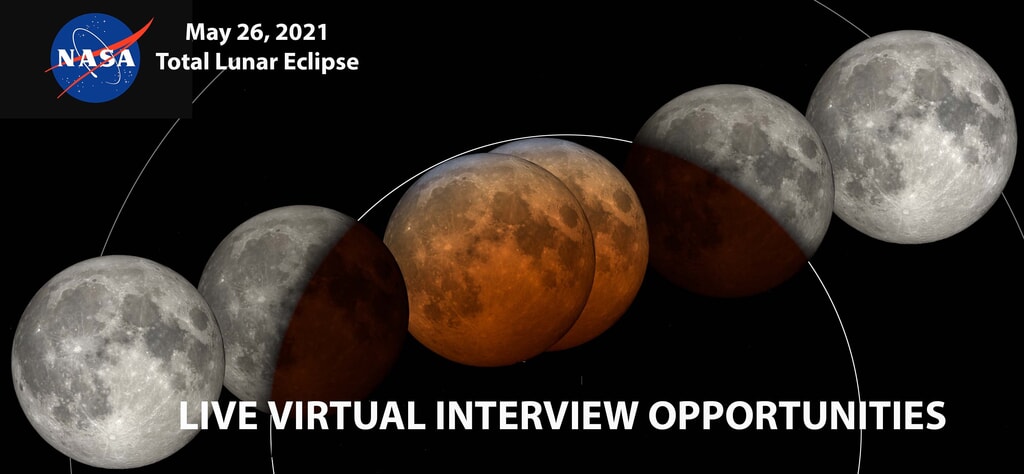
Summer stargazing is starting off at its finest next week with a special treat - certain sky watchers will be able to catch a glimpse of a rare lunar trifecta: a “super blood moon.” Not only will this be the biggest and brightest full moon of the year, it coincides with a total lunar eclipse, where the Moon will appear red for approximately fifteen minutes.
NASA experts are available virtually for live or taped interviews on <Tuesday, May 25 from 6:00 a.m. to 1:00 p.m. EDT to tell your viewers how they can watch this lunar double feature and share highlights of lunar science as NASA prepares to send the next generation of explorers to the Moon with the Artemis program.
A supermoon is when a full Moon coincides with the closest point in the Moon's orbit, making it appear larger and brighter than normal. Next week will be the closest the Moon gets to Earth this year.
A lunar eclipse occurs on a full moon when the path of the Moon's orbit takes it into Earth's shadow, shielding it from the Sun. The light of all the sunrises and sunsets on Earth are cast on the Moon, giving it the temporary reddish color.
The supermoon will be visible across the United States, as well as a total lunar eclipse for those located west of the Mississippi river. Those east of the Mississippi River will see a partial eclipse.
To Schedule an interview: Please fill out this form**: https://forms.gle/DaqZhy5eVbwYwYSX7
**Please note: this form will close at 12:00 p.m. EDT on Monday, May 24, requests received after that time may not be accommodated.**
Interviews will be conducted using video chat programs including Zoom and Skype, in 15-minute slots. For example 600-615 ET, 615-630 EDT, etc. Our preferred program is Zoom. Satellite interviews are not available. Please do not use an IFB unless necessary.
*Spanish interviews are available*
Participating Experts:
Andrea Jones / Science Communicator
Ernie Wright / Science Visualizer
Noah Petro / LRO Project Scientist
Michelle Thaller / Science Communicator
Barbara Cohen / Planetary Scientist
Kelsey Young / Research Space Scientist
Molly Wasser / Science Communicator
Francisco Andolz* / LRO Mission Director
Lucas Paganini* / NASA Program Scientist
*Spanish speaking talent
Suggested Questions:
We’ll get some excitement looking at the Moon tonight! What makes tonight's Moon so special?
You said the Moon will turn red during the lunar eclipse, why is that?
We sent people to the Moon with the Apollo program, now we’re going back with Artemis. What are we doing right now to get ready?
How does our Moon help us better understand other planets and moons in our solar system?
Where can our viewers go to learn more about the Moon?
Longer Questions:
NASA has been studying the Moon in incredible detail with the Lunar Reconnaissance Orbiter for almost 12 years. What are some of your favorite things we have learned about our Moon?
How is the Lunar Reconnaissance Orbiter helping to usher in a new era of lunar science?
A lunar eclipse must be a rough ride for a solar-powered lunar orbiter. What does the Lunar Reconnaissance Orbiter have to do to prepare for an eclipse?
Suggested Anchor Intro:
So many of us look up and watch the Moon, and tonight’s Moon is giving us a special show. The second, and also the biggest, supermoon of the year and a lunar eclipse!
Here to talk about why tonight’s Moon is so special, and the ongoing effort to return humans to the Moon is NASA expert XXXX.
A Double Feature!! Talk to NASA experts about next week's Supermoon AND Lunar Eclipse

NASA experts are available virtually for live or taped interviews on <Tuesday, May 25 from 6:00 a.m. to 1:00 p.m. EDT to tell your viewers how they can watch this lunar double feature and share highlights of lunar science as NASA prepares to send the next generation of explorers to the Moon with the Artemis program.
A supermoon is when a full Moon coincides with the closest point in the Moon's orbit, making it appear larger and brighter than normal. Next week will be the closest the Moon gets to Earth this year.
A lunar eclipse occurs on a full moon when the path of the Moon's orbit takes it into Earth's shadow, shielding it from the Sun. The light of all the sunrises and sunsets on Earth are cast on the Moon, giving it the temporary reddish color.
The supermoon will be visible across the United States, as well as a total lunar eclipse for those located west of the Mississippi river. Those east of the Mississippi River will see a partial eclipse.
To Schedule an interview: Please fill out this form**: https://forms.gle/DaqZhy5eVbwYwYSX7
**Please note: this form will close at 12:00 p.m. EDT on Monday, May 24, requests received after that time may not be accommodated.**
Interviews will be conducted using video chat programs including Zoom and Skype, in 15-minute slots. For example 600-615 ET, 615-630 EDT, etc. Our preferred program is Zoom. Satellite interviews are not available. Please do not use an IFB unless necessary.
*Spanish interviews are available*
Participating Experts:
Andrea Jones / Science Communicator
Ernie Wright / Science Visualizer
Noah Petro / LRO Project Scientist
Michelle Thaller / Science Communicator
Barbara Cohen / Planetary Scientist
Kelsey Young / Research Space Scientist
Molly Wasser / Science Communicator
Francisco Andolz* / LRO Mission Director
Lucas Paganini* / NASA Program Scientist
*Spanish speaking talent
Suggested Questions:
We’ll get some excitement looking at the Moon tonight! What makes tonight's Moon so special?
You said the Moon will turn red during the lunar eclipse, why is that?
We sent people to the Moon with the Apollo program, now we’re going back with Artemis. What are we doing right now to get ready?
How does our Moon help us better understand other planets and moons in our solar system?
Where can our viewers go to learn more about the Moon?
Longer Questions:
NASA has been studying the Moon in incredible detail with the Lunar Reconnaissance Orbiter for almost 12 years. What are some of your favorite things we have learned about our Moon?
How is the Lunar Reconnaissance Orbiter helping to usher in a new era of lunar science?
A lunar eclipse must be a rough ride for a solar-powered lunar orbiter. What does the Lunar Reconnaissance Orbiter have to do to prepare for an eclipse?
Suggested Anchor Intro:
So many of us look up and watch the Moon, and tonight’s Moon is giving us a special show. The second, and also the biggest, supermoon of the year and a lunar eclipse!
Here to talk about why tonight’s Moon is so special, and the ongoing effort to return humans to the Moon is NASA expert XXXX.
Related
For More Information
Credits
Michelle Handleman (USRA): Producer
Aaron E. Lepsch (ADNET Systems, Inc.): Technical Support
Christina Brooke Mitchell (KBR Wyle Services, LLC): Lead Producer
Courtney A. Lee (ADNET Systems, Inc.): Producer
Aaron E. Lepsch (ADNET Systems, Inc.): Technical Support
Christina Brooke Mitchell (KBR Wyle Services, LLC): Lead Producer
Courtney A. Lee (ADNET Systems, Inc.): Producer
Please give credit for this item to:
NASA's Goddard Space Flight Center
NASA's Goddard Space Flight Center
Short URL to share this page:
https://svs.gsfc.nasa.gov/13861
Keywords:
SVS >> LRO
SVS >> Lunar Reconnaissance Orbiter
NASA Science >> Planets and Moons
https://svs.gsfc.nasa.gov/13861
Keywords:
SVS >> LRO
SVS >> Lunar Reconnaissance Orbiter
NASA Science >> Planets and Moons
